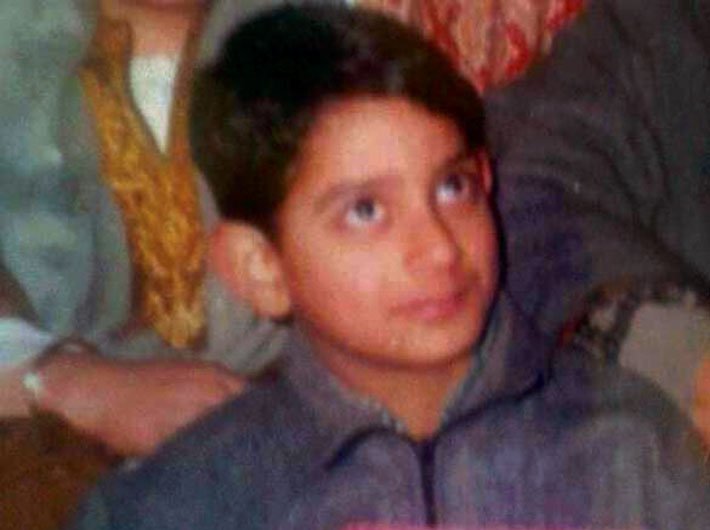A youngster whose first memories are of troopers raiding his home recalls the homeland nostalgically, and wishes a better future for the next generation
June 8, 2014 is a day I will remember forever. I had an amazing experience that day: I watched the Akshay Kumar-starrer ‘Holiday’ in a theatre in Bangalore. This was the first time I was watching a movie in a theatre – at the age of 23! But, then, there are no cinema halls in Kashmir, where I was born and grew up. I am told that my parents – father was in furniture business and mother a homemaker – used to watch films earlier. But by the time I was born, in 1991, Kashmir was in turmoil.
We lived in a three-storey mud-house in Srinagar’s Batmaloo locality. My first memories of the world around me are those of a posse of BSF troopers entering our home, in search of something that I could never figure out. I remember the announcements they made from the public address system of the local mosque, asking people to come out for search. This meant that our locality was under a ‘crackdown’ by the forces and we had to vacate our home to enable them to search for any militants. My father would tell me to say salaam to the “army uncle”, and I used to shake hands with them, though I had no idea why my family would force me to wish and greet a security force personnel.
I would sometimes play cricket with my friends in a vacant plot in the neighbourhood. I do not remember going out with my family because we were told to remain indoors.
I used to look intently at the huge mud bunker that had come up close to the gate of my home. It was initially manned by BSF men and then by CRPF people. I had no hard feelings towards them. I keenly awaited August 15 because we would get sweets from the ‘bunker uncles’ that day. However, I had always noticed how my mother would be anxious whenever security men entered our home. She would be angry at the mud and soil their heavy boots brought onto our matting. She would also be angry picking stuff security men threw all around while searching the place.
Once, my cousin Musaib, who was of the same age as me, had come to visit us. He woke up before me and went out on my bicycle. Closer to the bunker, he was chased by street dogs that the security forces looked after as guard dogs. He was so terrified that he fell from the bicycle and got enmeshed in the concertina wire surrounding every bunker. He had to undergo plastic surgery and prolonged treatment.
One day, I remember, there was a big bang just outside my home. Some people had thrown a grenade at the BSF bunker. The men in olive were livid with anger. My parents rushed to the attic with me and my brother, after switching off the main power supply switch, plunging the house into darkness. My brother had a severe cold and each time he felt like coughing my father put his hand on his mouth. We remained in hiding for a long time, till the BSF men had left the place. The idea of switching off the lights had worked. The BSF men could not search our house due to darkness and had left.
My grandfather would at times try to explain the whole situation to me. He would tell me the reasons for the presence of security forces around us. I could not comprehend much of it. However, I was growing up with a feeling that there was some problem in our lives, and I and my brother would have to live with it all our lives.
I was in Class 12 when I would see from the window of my house hundreds of angry youngsters pelting stones at the bunkers manned by the CRPF. The men in uniform would throw back the stones, some of which hit the window panes of my house. I wondered who the security persons were protecting.
School would be often closed. Finally after passing Class 12, I got admission in the SSM College. I chose computer engineering course. (I had always wanted to become a journalist but my parents thought the only job journalists have to do is to cover ‘encounters’ and violence and they forbade me.) Due to curfews, strikes and agitations, our exams were often postponed, and my batch ended up completing the four-year course in five years.
Now I had to search for a job. There is no IT industry in Jammu and Kashmir. The state government has proposed one at Srinagar, but the Indian air force has gone to court against the plan citing security concerns. With no hope of finding a job in Kashmir, I headed for Bangalore in March. I had only once travelled outside Kashmir – to Allahabad. I loved the place and, therefore, was not averse to going out again for a job.
In 10 months of my stay in Bangalore, I keep thinking about Kashmir. When I look at the happy faces of young people I realise what we have lost. Youngsters from other states work five days a week and enjoy the weekends, but in Kashmir we neither work nor enjoy. When I move around the city seeing people leading normal lives, I ask myself if Kashmir will ever be like this.
People here have a zest for life but Kashmiri youths are compelled to watch the same game of stone-pelting. Last Saturday I went to a resort in Bangalore where I was amazed to see people in their 70s enjoying water rides. In Kashmir people of that age group are treated as if they have an expiry tag on them. Most of them will not even venture out of their homes.
Now I am happy doing my job, but one day I wish to go back to Kashmir. I wish Jammu and Kashmir is made into a “smart state”, with the best of IT infrastructure. I know we have to prepare the ground for it so that national and international companies like Wipro, HGS and TCS have offices there. I really want to see change in Kashmir – in economy, development, and reconstruction. Why can’t it have world-class resorts and excellent tourism facilities?
I don’t want to talk about politics or religion. I just want to make a humble request to all those responsible for the unrest: can’t you live and let me live? Why don’t you use laptops and internet to push your demands, instead of using stones and AK-47s? This will spell some relief for a vendor, a student, a common man, who routinely suffer from curfews and strikes.
I could write more but am afraid that someone will either called me a gaddar (traitor) or nationalist, and both tags are fraught with dangerous consequences.
Umar works with an IT major in Bangalore. bhatumar@outlook.com
The article appears in December 16-31, 2014, issue

